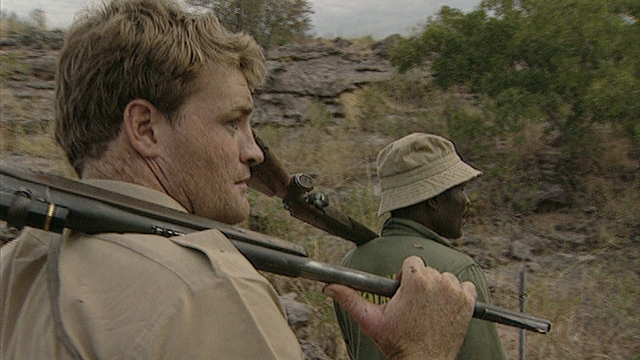Cull or be Culled
The controversy surrounding how to save Zimbabwe's elephants
 Since the ban on international ivory trade, elephant numbers are outgrowing Zimbabwe's human ones. Counter-intuitively, hunting may be the answer to protect wild populations.
Since the ban on international ivory trade, elephant numbers are outgrowing Zimbabwe's human ones. Counter-intuitively, hunting may be the answer to protect wild populations.
Maines Maringisanwa, whose husband was recently killed by an elephant and whose crop of maize and cotton plants are repeatedly trampled on, is understandably not convinced the elephants are worth saving. Creeping through the bush, cosmetic surgeon Constantine Kitsos has a water buffalo in his sights and is hoping to bag a trophy. Most of the animals have a price on their head and at £5000 the elephant is the best. Half the money will go to the district council and half to the local community. Many consider elephant culling necessary to sustain an environment that everyone can live off. However, Zimbabwe has 33 tonnes of elephant tusks collecting dust in a warehouse in Horare and in 20 months time under a CITES plan, two lots of tusks will be auctioned off to Japan. If this trade is not strongly regulated many fear there will be a return to widescale poaching. There have already been accusations of mismanagement thrown at Willas Makombe, Director of National Parks and Wildlife, that 10 tonnes of ivory has left Zimbabwe illegally.
Produced by ABC Australia
FULL SYNOPSIS

